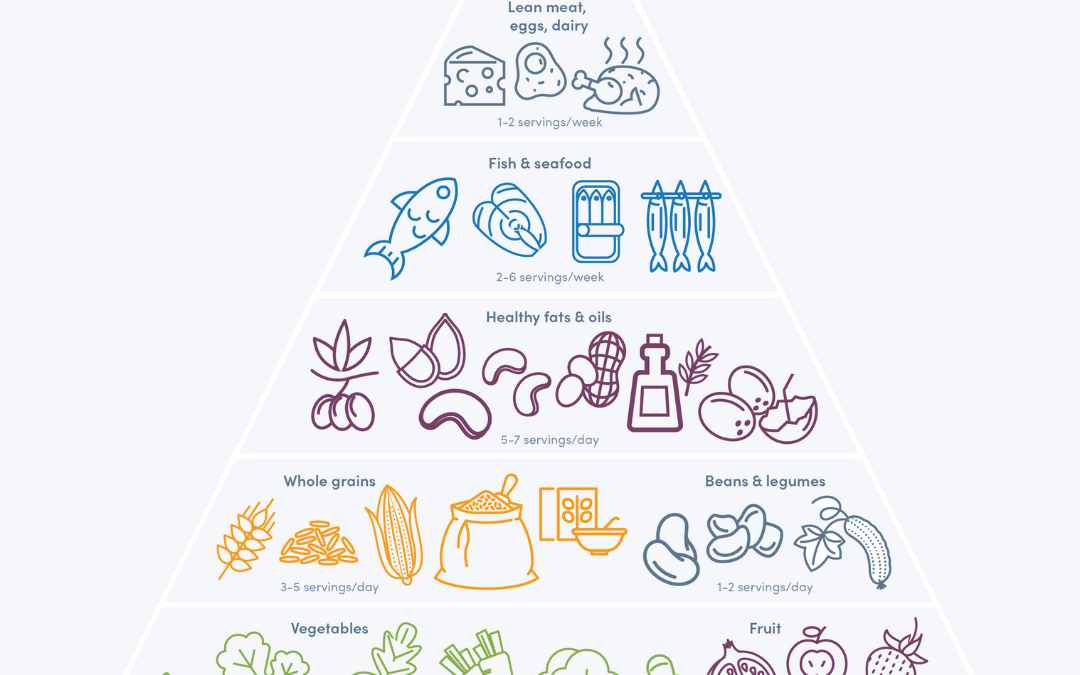The Anti-inflammatory Diet: A Healthy Way to Eat that Combats Inflammation and Chronic Diseases
What is inflammation?
Inflammation is the body’s natural immune response. It involves a balance between pro-inflammatory and anti-inflammatory mechanisms that allow our bodies to repair and recover.
The acute inflammatory response is normal and essential to the healing process. But chronic inflammation, or “silent inflammation”, in which the inflammatory response persists below the threshold of pain, has been linked to chronic health conditions such as cardiovascular disease, arthritis, cancer, and diabetes.
How Does an Anti-Inflammatory Diet Work?
The intake of certain foods and nutrients can modulate inflammation in the body by affecting inflammatory pathways. Anti-inflammatory diet is a diet that targets chronic inflammation by incorporating an abundance of anti-inflammatory foods and moderating or restricting the intake of potentially pro-inflammatory foods.
The anti-inflammatory diet involves:
- The consumption of foods and nutrients that are anti-inflammatory, such as omega-3 fatty acids and phytonutrient-rich plant-based foods like vegetables, fruits, nuts, and whole grains.
- Restrictions on pro-inflammatory foods such as processed foods, refined carbohydrates, trans-fats, and too much saturated fat and vegetable oil.
- Balancing levels of omega-3 to omega-6 fatty acids.
- Maintaining a stable blood sugar level.
Who Benefits from an Anti-Inflammatory Diet?
The anti-inflammatory diet is a healthy eating plan that can help lead to weight loss, reduce chronic inflammation and improve health. The American Academy of Nutrition and Dietetics (AAND) recommends the anti-inflammatory diet for people who suffer from inflammatory disorders like arthritis, asthma and lupus.
Anti-Inflammatory Foods You Can Eat on a Regular Basis
The food you consume can affect the amount of a marker of inflammation in your blood called C-reactive protein (CRP). This could be due to some foods, like processed sugars, releasing inflammatory messengers that may increase the risk of chronic inflammation.
An anti-inflammatory diet can be beneficial in lowering the risk of chronic diseases and inflammatory diseases. You can choose from a variety of anti-inflammatory foods, some of which include whole grains, beans, fruits, vegetables and high-quality protein sources.
It is also high in omega 3 fats because they have been scientifically proven to counter the production of pro-inflammatory cytokines. Omega 3s are found in cold water fish such as salmon, tuna, herring and anchovies. They are also found in walnuts, other nuts, seeds and vegetable oils such as canola oil or olive oil.
Researchers have found that inflammation is a major player in the development of many health problems. A diet that is rich in anti-inflammatory foods can help lower inflammation and increase your overall health.
References:
- Marcason, W. (2010) What is the Anti-Inflammatory Diet?. Chicago: Elsevier Inc.
- Mardale, E. & Cingolani, M. P. (2020) Foods with anti-inflammatory effects – prevention or cure?. Medic.ro 5:137, pages 48.
- Palmer S. (2009) Putting the brakes on inflammation through diet and lifestyle strategies. Environmental Nutr.
- Brody, B. (2020) Natural Anti-Inflammatory Diet. WebMD, LLC.


